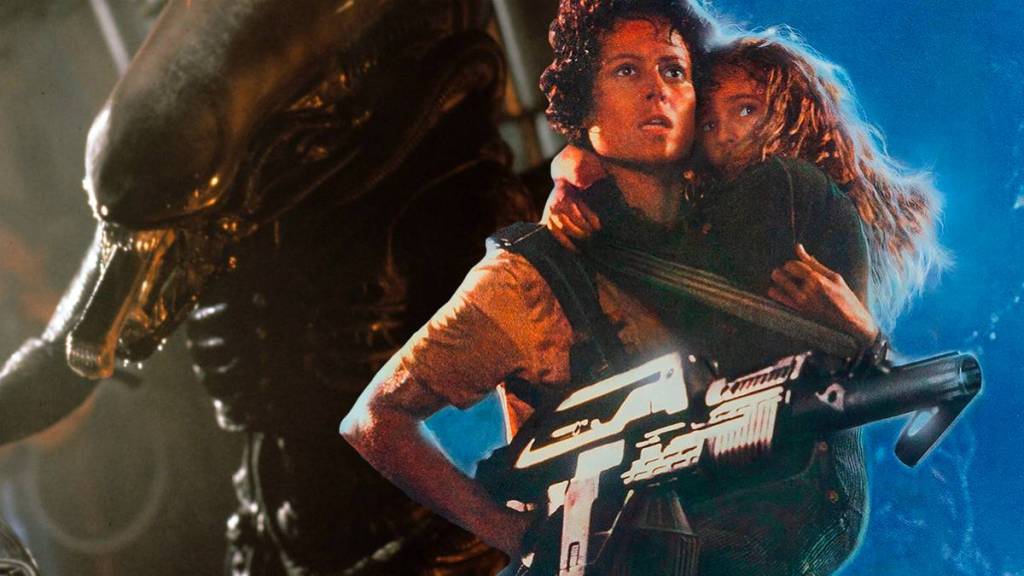Alien vs. Aliens: Which Iconic Sci-Fi Masterpiece Reigns Supreme? By We’re getting a this week, Fede Alvarez’s Alien: Romulus. Naturally, we’ll have a slew of Alien content to commemorate Romulus’ opening on Thursday, including rankings, a reevaluation of David Fincher’s controversial Alien 3, and more.
First up, though, is revisiting the Alien vs. Aliens debate. Now, this debate has long divided Alien fandom.

Some view Ridley Scott’s 1979 shocker Alien as a genre-defining piece of science fiction, while others rank James Cameron’s Aliens as the greatest action picture ever produced. Is there a correct answer to this? Alvarez took a more political approach during a recent Q&A at Comic-Con, citing Alien as the better film and Aliens as his favorite entry. What do you say? Before I reveal my choice, let’s compare and contrast specific details in each film.
Alien remains a seminal work of art, a film unlike any other that inspired a slew of imitators and continues to entertain to this day. Scott’s vision is awe-inspiring, presenting a dark future packed with fascinating, albeit grounded, technology, intricately detailed space crafts, frightening extraterrestrials, and strange landscapes bathed in shadow. I’ve seen Alien at least a thousand times and am always surprised at how striking it looks compared to some modern-day blockbusters.
It is truly one-of-a-kind. By contrast, James Cameron’s Aliens relies less on visuals, even though it still delivers in that department. Everything from the gun-shaped Sulaco to the Colonial Marines’ weapons, tech, and vehicles is intricately designed, while the Alien Queen reigns as the most badass creature design ever committed to film.
Aliens is more straightforward in plotting and character design; Cameron focuses little on exotic landscapes or lavishly decorated ship designs. He’s much more interested in the tech — M41A Pulse Rifles, M56 Smartguns, M577 Armored Personnel Carriers (APC), etc. — and to that end, he doesn’t disappoint.
This point is a little trickier to decipher due to the drastic differences between each film. Alien strives for a haunted house approach, relying on mystery, carefully crafted tension, and eerie visuals to get under your skin. Thanks to Scott’s more naturalistic style, it’s more disturbing than terrifying and certainly accomplishes what it sets out to do: leave viewers peering through their fingers at the horror onscreen.
Aliens, meanwhile, is a kickass action epic with giant set pieces, thunderous effects, and significant emotional stakes. Cameron ratchets up the tension from the opening scene and doesn’t relent until the end credits roll. Coupled with James Horner’s phenomenal (and Oscar-nominated) militaristic score, Aliens delivers pure, unadulterated cinema spectacle.
Few films match its bravado and bombast. Roger Ebert put it more succinctly in his review: Here’s where Alien vs. Aliens truly clash.
Alien features a small assortment of colorful characters with enough personality to make them worth rooting for. We don’t learn too much about their backstories, but carefully placed dialogue, solid performances, and a few character quirks make the doomed crew of the Nostromo relatable. The camaraderie (or lack thereof) between Dallas (Tom Skerritt), Ripley (Sigourney Weaver), Lambert (Veronica Cartwright), Parker (Yaphet Kotto), Kane (John Hurt), Brett (Harry Dean Stanton), and Ash (Ian Holm) is apparent from the onset, which makes their demises that harder to watch.
Still, Cameron’s characters take the crown. Weaver, in particular, enjoys a more prominent emotional arc in Aliens, primarily due to Carrie Henn’s Newt. A deleted scene involving Ripley’s deceased daughter raises the stakes further, resulting in a riveting, surprisingly stirring third act.
Don’t discount the Vietnam parallels, either. Ripley suffers from PTSD and returns to the battleground like Rambo, ultimately confronting and vanquishing her fear. Plus, I mean, come on .
.. how do you top Hicks (Michael Biehn), Hudson (Bill Paxton), Vasquez (Jenette Goldstein), and Bishop (Lance Henriksen)? Not to mention their supporting mates who inspired everything from Halo to Predator.
Even side characters like Lieutenant Gorman (William Hope) enjoy satisfying character arcs. Another difficult category to judge is precisely because both films present a distinct vision they execute to perfection. Alien deserves kudos for having the balls to follow through with HR Giger’s terrifying design.
I would love to go back in time and witness the audience’s first reaction to this nightmarish creature, something we take for granted after the slew of sequels, video games, and comic books it inspired. In terms of novelty, Alien takes the cake. Scott’s Xeno is drenched in mystery.
It is the perfect organism designed for a singular purpose: to kill. We learn little about its origin, motivations, or species. A scene in the Director’s Cut involving victims morphing into eggs only fuels the debate.
And yet (in an opinion that might get me punched in the mouth), I think Cameron’s Xenos, specifically the Queen, are far superior. Cameron enhances Giger’s design, making these alien baddies more ferocious and intelligent. They function in packs, live in a hive, and live only to serve their Queen, snatching victims to increase their vast numbers.
As stated by one of the characters, these Xenos are more like ants than mysterious beings from beyond, capable of destroying vast civilizations if left unchecked. The bit where Ripley confronts the Queen and negotiates her escape is phenomenal cinema. Alien and Aliens each left a significant footprint in the cinematic landscape.
Scott’s picture is a perfect creation, an intelligent, visually dazzling sci-fi horror epic that paved the way for a generation of filmmakers. Visually, it’s nearly unmatched, while its “Jaws in space” concept led to films like John Carpenter’s The Thing, David Twohy’s Pitch Black, and Danny Boyle’s Sunshine, and video games like Dead Space and Alien: Isolation. Cameron’s sequel, meanwhile, left a more significant impact on the series overall.
Nearly every comic book, novel, and video game borrows from Aliens. The sequel influenced video games like Contra, Doom, Halo, Gears of War, and films like Predator and Independence Day. Its military sci-fi and depiction of combat in a sci-fi setting greatly impacted the action genre.
In addition, Aliens delivered one of the all-time great action heroes in Ellen Ripley. Alien may have introduced her to the world, but Aliens developed her into a flesh-and-blood character willing to battle the forces of evil to save the people she loves. Nothing, and I mean nothing, tops this moment in any action picture: Aliens is my favorite film outside of Cameron’s Terminator 2: Judgment Day.
I’ve likely seen it more than any other film, except maybe Jaws. Artistically, Scott’s Alien takes the crown, but nothing beats Aliens in terms of sheer cinematic pleasure. As much as I want Alien: Romulus to adhere to Scott’s overarching vision, I’m more excited at the prospect of more Aliens.
That’s my two cents. What say you when it comes to Alien vs. Aliens? Jeff lives and breathes all things sports and entertainment! As a die-hard Seahawks fan and devoted Utah Jazz supporter, you'll often find him cheering his heart out for his favorite teams.
Jeff's passion for movies is unrivaled, and he has channeled that enthusiasm into a successful stint at ComingSoon.net. When he's not immersed in the world of media, Jeff loves spending quality time swearing at his favorite sports teams with his family.
He also loves hats. Share article Related.



















